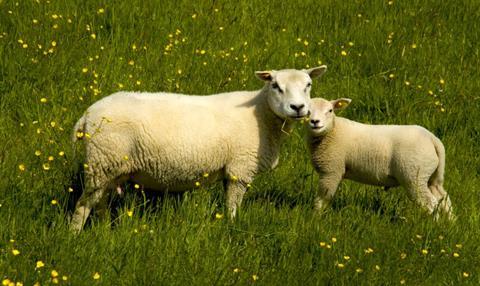The National Sheep Association reacted positively to news that the US Department of Agriculture (USDA) has published a final rule that lifts the BSE-related restrictions on imports of sheep and goat products to the USA.

The USDA stated on its website: 'This rule removes remaining bovine spongiform encephalopathy (BSE) import restrictions on sheep, goats and their products, and aligns the regulations with the current scientific understanding of BSE.'
According to the US government's Federal Register, the changes will come into force from 3rd January 2022. The NSA said this should pave the way for the UK to gain market access for lamb.
NSA chief executive Phil Stocker said: “We are extremely pleased to hear this ruling as the small ruminant rule has blocked the way for exports of lamb and sheep genetics to the USA for many years. This will help expand trade opportunities for UK sheep farmers and exporters and should see British sheepmeat having access to the USA as early as spring 2022, to complement their domestic product and that of other nations.
"Credit should be given to AHDB who have been working on this issue for many years and it’s a good example of the value of our lamb levy, the UK Export Certification Partnership, but also to the government and Department of International Trade who have invested in opening negotiations between the UK and USA.”
"Great opportunities in the USA"
The NSA said that the importance of the development should not be underestimated and it looked forward to seeing more detail in the weeks to come.
On the broader opportunities presented by the lifting of the ban, Stocker said: “We are getting closer by the day to having access to the USA market. I believe there are great opportunities in the USA that will benefit British sheep farmers but also benefit the appreciation of lamb by USA consumers as a quality, tasty and highly nutritious food produced to exacting environmental and animal welfare standards. We also know there is a strong demand for UK sheep genetics in the USA – semen and embryos.
"Many British sheep breeds are present there but are numerically too small to have an adequate gene pool, so the demand for our genetics is strong and is already being asked for by USA sheep breeders. This is also the case for our commercial meat breeds and for many of our heritage/native breeds and will be of benefit to the global sheep farming sector.”
This story was originally published on a previous version of the Meat Management website and so there may be some missing images and formatting issues.















